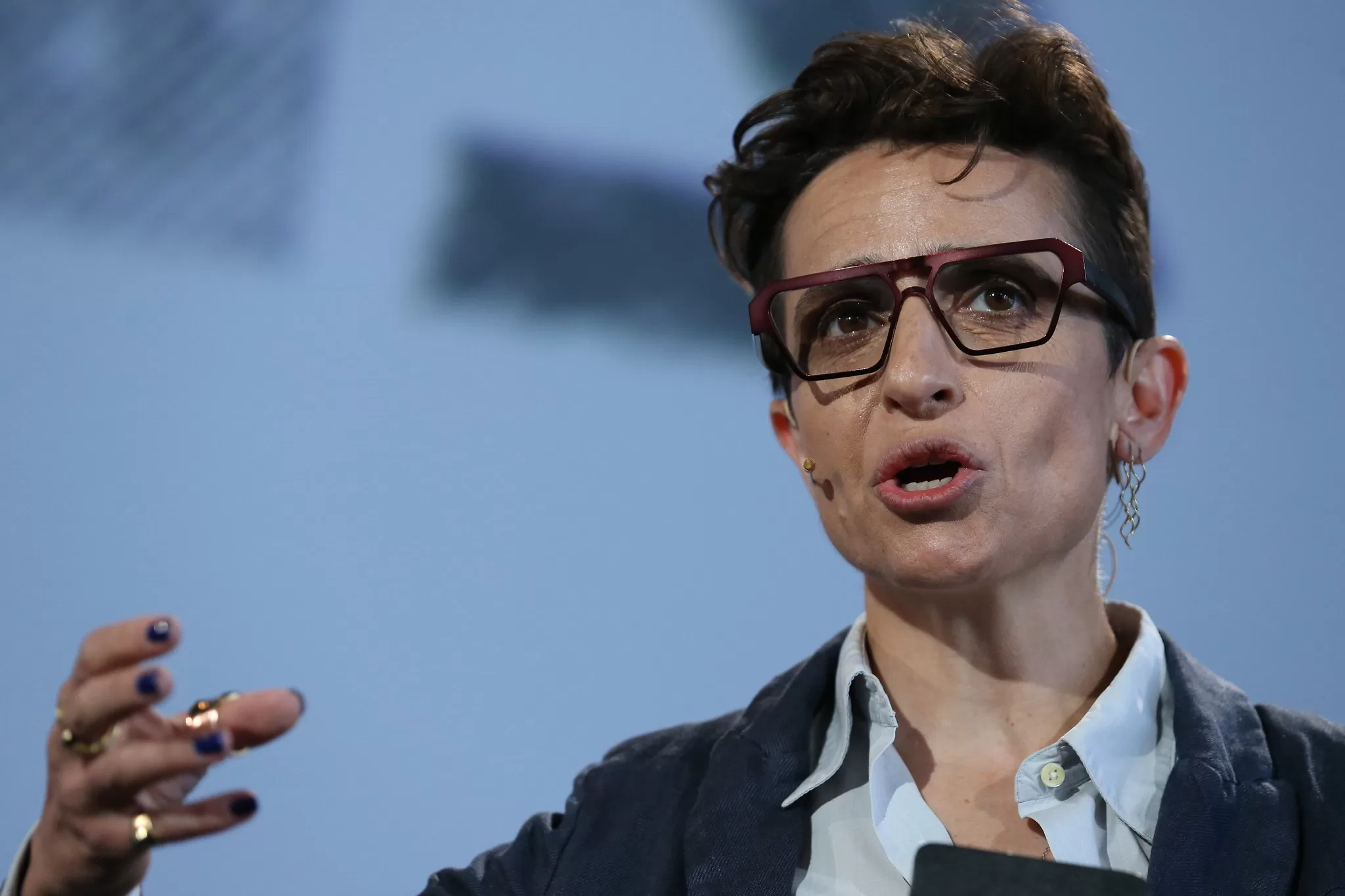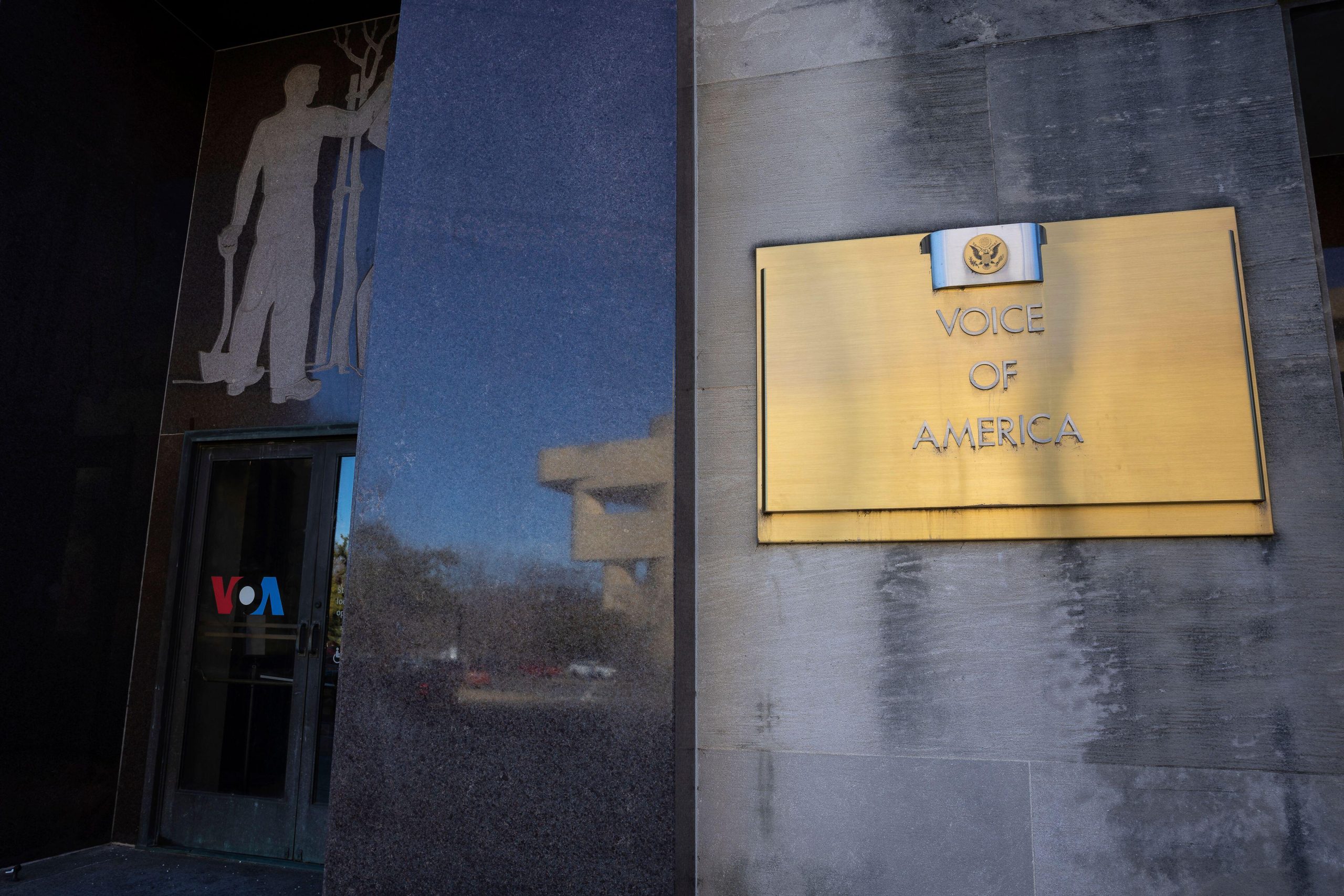The rules on what we can and cannot say have exponentially increased since Hamas’ attack in Israel in October and Israel’s response. Just ask Masha Gessen. Over the last few days the Russian-American writer has found themselves at the centre of a controversy over an award they were due to receive.
It was a play of two acts. Act one, disinformation. The well-respected site LitHub ran an article with the heading “Masha Gessen’s Hannah Arendt Prize has been canceled because of their essay on Gaza.” The problem was it hadn’t been cancelled. Gessen pointed that out, saying they had only been approached by one journalist and that as a result “inaccuracies pile up”. LitHub had to issue what every editor dreads – a correction.
The reality – act two – was more prosaic. The main sponsor withdrew their support of the ceremony. It still went ahead, just at a different venue, on a different day. This past weekend Gessen received the Hannah Arendt prize for political thought for their work documenting Russian war crimes. It was a slimmed-down event; Gessen had a police escort.
Even in the absence of more in-your-face censorship, this still feels very problematic, part of a broader ecosystem in which people are punished in some way for what they say. And all of this because of a few lines in a New Yorker article in which Gessen compared Gaza to Nazi-era ghettos.
I should state here, for whatever relevance it holds, that I am Jewish. My family tree lost most of its branches because of the Holocaust. I’m sensitive to both inaccurate comparisons with the Holocaust and to Jewish suffering and prejudice writ large. Like myself, Gessen was born into a Jewish family and is a descendent of those murdered in the Holocaust. Their piece was not, as the furore would have made me assume, a 3000-word smear piece on Israel. Instead it was a thoughtful response to Germany’s Holocaust memory, which criticised Israeli policy at points – as we all do. Gessen’s words were precise, measured, balanced. The root of the controversy was when Gessen says “the ghetto [Gaza] is being liquidated”, a part that is far from throwaway and instead accompanied by caveats and qualifications. That it could cause such outrage exemplifies everything wrong with how we are approaching conversations right now. We simply can’t handle views that we find confronting or upsetting. Our instinct is to silence and to over-correct.
We’re ending 2023 in a bad place. In every region of the world democracies are under attack, as a Freedom House report concluded. Argentina has elected a foul-mouthed president who denies the number of disappeared from the previous dictatorship. Donald Trump could be president in the USA again in 2024, even if from a jail cell, and he’s already threatened his critics. In once liberal Hong Kong Jimmy Lai, a pro-democracy activist and publisher, is on the stand in what could be best labelled a show trial. Russian troops are far from losing in Ukraine. And all the while countries like Germany, which are meant to promote free speech, are getting in tangles over anything they think could remotely be perceived as antisemitic. It’s a very bad place indeed.
Of course we didn’t arrive at the Gessen moment overnight. Our inability to move an inch from whatever camp we’ve pitched our flag has been going on for some time, with Israel-Palestine and other conflicts and ways we identify.
But staying with Israel-Palestine, who exactly does it benefit? Our fear that some language might be labelled antisemitic means we’re looking in the wrong direction. Attacks on Jews are rising around the world. In Germany itself, the far-right AfD party won its first mayoral victory at the weekend. Anti-Muslim crimes are surging too. There are plenty of real, ugly attacks that we need to tackle. It’s just they’re not coming from Gessen or the New Yorker. To suggest as such distracts.
If the goal is to lessen hatred, to create more tolerant societies, the approach of trying to block out speech we don’t like doesn’t work, not least because the instinct itself is authoritarian. Pro-Palestinian voices are being silenced, as are Jewish ones. It’s minorities who always lose out.
In Gessen’s acceptance speech for the award, which was not their original one, they spoke of the power of comparisons: “Comparison is the way we know the world. And yet we make rules about things that cannot be compared to each other,” they said, adding that the Holocaust has been put in a place where it is seen as an exception, unlike anything else, beyond likening. Gessen was clearly not going to be silenced. Instead they chose the moment to pause and reflect, to open up a conversation about how language is used and to challenge the rules around speech that we’ve currently been told to obey. There are lessons to be learnt here as we head into 2024.






